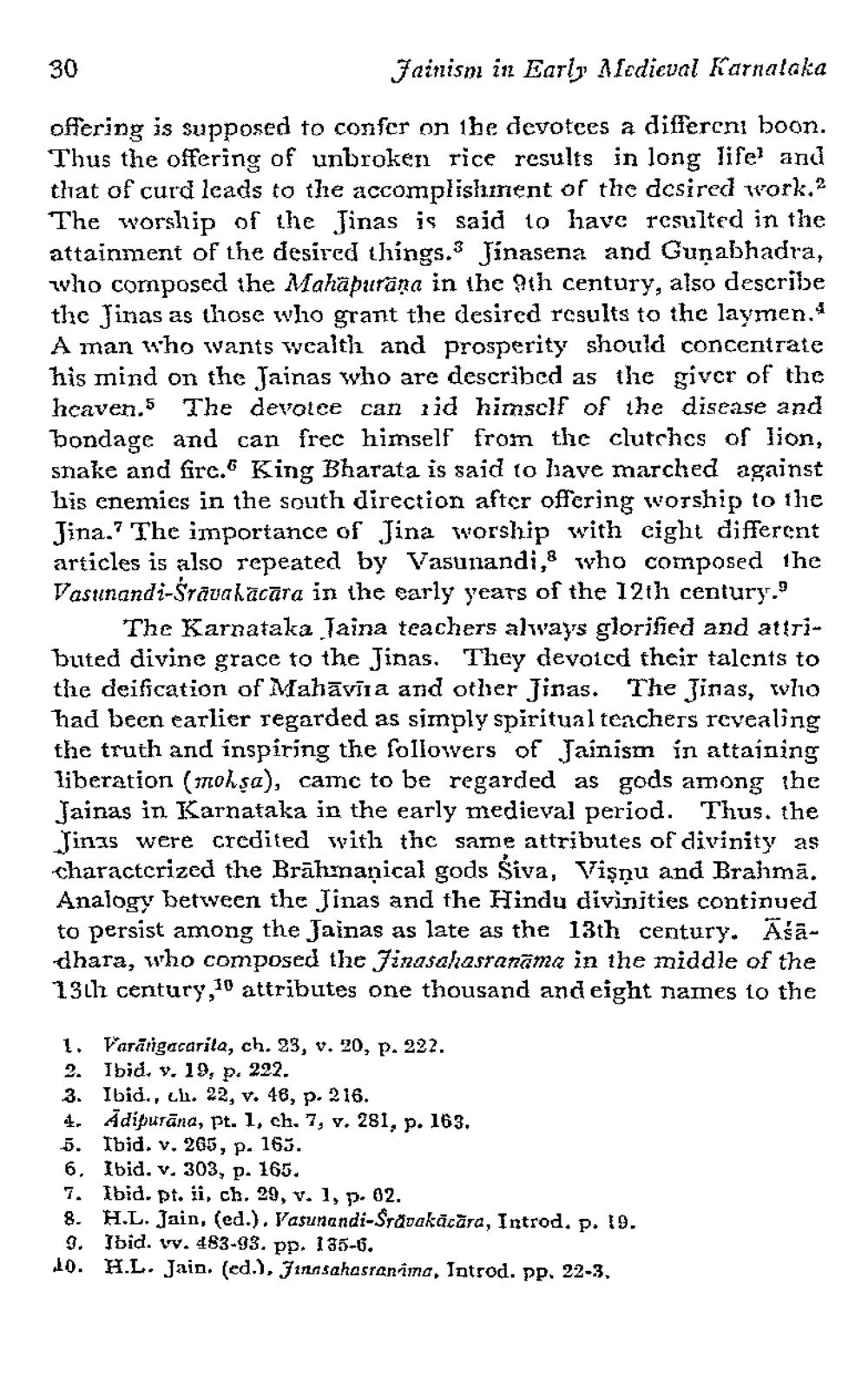________________
Jainism in Early Alodieval karnataka
offering is supposed to confer on the devotees a differcni boon. Thus the offering of unbroken rice results in long life and that of curd leads to the accomplishment of the desired work. The worship of the Jinas is said to have resulted in the attainment of the desired things.3 Jinasena and Gunabhadra, who composed the Mahapuräna in the 9th century, also describe the Jinas as those who grant the desired results to the laymen.' A man who wants wealth and prosperity should concentrate his mind on the Jainas who are described as the giver of the hcaven.5 The devotce can rid himself of the disease and bondage and can frec himself from the clutches of lion, snake and fire. King Bharata is said to have marched against his enemies in the south direction after offering worship to the Jina.? The importance of Jina worship with cight different articles is also repeated by Vasunandi,& who composed the Vasunandi-Sravalacara in the early years of the 12th century."
The Karnataka Jaina teachers always glorified and attributed divine grace to the Jinas. They devoted their talents to the deification of Mahāvīia and other Jinas. The Jinas, wl10 had been earlier regarded as simply spiritual teachers revealing the truth and inspiring the followers of Jainism in attaining liberation (mohşa), came to be regarded as gods among the Jainas in Karnataka in the early medieval period. Thus, the Jinas were credited with the same attributes of divinity as characterized the Brāhinanical gods Siva, Vişnu and Brahmā. Analogy between the Jinas and the Hindu divinities continued to persist among the Jainas as late as the 13th century. Äsadhara, who composed the Jinasahasranama in the middle of the 13th century, jo attributes one thousand and eight names to the
1. Varātigacarila, ch. 23, v. 20, p. 222. 2. Ibid. v. 19, p. 222. 3. Ibid., ch. 22, v. 48, p. 216.
Adipurāna, pt. 1, ch, 7, v. 281, p. 163. Ibid. v. 265, p. 163.
Ibid. v. 303, p. 165. 7. Ibid. pt. ii, ch. 29, v. 1, p. 02. 8. H.L. Jain, (ed.). Vasunandi-Srävakācāra, Introd. p. 19.
9. Ibid. v. 483-93. pp. 135-6. 10. H.L. Jain. (ed.), 1nasahasranima, Introd. pp. 22-3,




